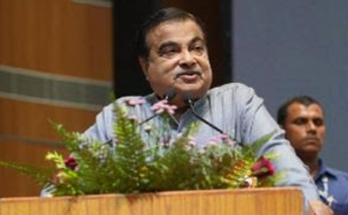Recently the World Health Organisation (WHO) has also appraised the same philosophy.
Acute exercise (moderate to vigorous for less than 60 minutes) supports the immune system, improving defense activity and metabolic health, reveals a review recently (2019) published in the Journal of Sport and Health Science. The research data evidently supports the relationship between the exercise and lower risk of illness.
Moderate to intense workouts support the immune system by stimulating the movement and exchange of numerous immune cell subtypes between tissues during enhanced circulation, said Jaideep Sarkar an athlete.
Jaideep is Asian silver medalist in Volleyball (AVC) and Global Active Partner City officer, Bokaro. He is also the Executive Committee Member of Indian Pierre De Coubertin Association (IPCA) and National Council of Sports Science & Physical Education (NCSPE).
Daily exercise accumulates such benefits to improve overall immune defense and metabolic health, said Jaideep.
Maximising the base of sports pyramid could be catalytic in many ways in the post-COVID-19 period not only in India but across the globe, he said.
In India, it is alarming that only a mere 4.69 per cent of people do regular sports keeping aside a mammoth 95.31 per cent of the population, reveals Researches & Analytical studies (ref: Statista Research Dept.- Oct’- 2018), said Jaideep adding, “our country is having the highest and vulnerable youth population, ignoring sports or exercise, youths cannot yield results, eighter for their wellness or for achievements in sports.”
Summarizing previous research discoveries about the “compelling link between physical activity and the body’s defense system” we found that, it mainly focused on four areas of exercise immunology includes i) Acute and chronic effects of exercise on the immune system; ii) Clinical benefits of the exercise-immune relationship; iii) Nutritional influences on the immune response to exercise; and iv) Effect of exercise on immunosenescence— the gradual deterioration of the immune system along the ageing process, he said.
“All these reviews also cites several studies suggesting that regular physical activity decreases the incidence and mortality rates of influenza and pneumonia,” he added.
“Habitual exercise improves immune regulation which delays age-related dysfunction however, risk of illness increases for athletes during periods of intensified training and competition due to an unusual cycle of psychological pressure, inflammation, muscle damage and others,” said Jaideep.
Exercise boosts, anti-inflammatory and antioxidant influences in our bodies which mediated through multiple pathways, decreasing levels of inflammatory biomarkers in fit adults and modulating tumor growth and disease progression. Increasing carbohydrate and polyphenol intake is an effective nutritional strategy for immune support, he said.
“The silent yet significant avenues of sports should be nurtured at any cost,” added Jaideep.





